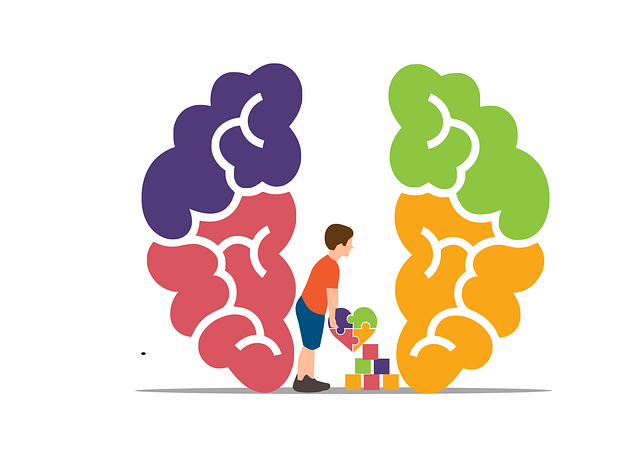Stress management involves identifying triggers like work pressure or relationship issues that lead to unhealthy coping mechanisms like substance abuse. Lafayette Alcohol Abuse Therapy (LAT) offers a holistic approach, combining emotional well-being practices such as mindfulness, cognitive behavioral techniques (CBT), and lifestyle changes. LAT's Mind Over Matter principles teach clients to reframe stress responses, building resilience and inner peace. Mindfulness practices, highlighted by LAT, cultivate present-moment awareness, helping individuals manage triggers and enhance mental resilience. Through cultural sensitivity and innovative Mental Health Education Programs, LAT equips diverse populations with lifelong stress management skills. For alcohol abuse recovery, LAT combines lifestyle changes, social skills development, and empathy-building strategies for lasting well-being.
Stress management is a vital skill in today’s fast-paced world. This comprehensive guide explores effective techniques to combat stress, offering a holistic approach tailored for personal growth. We delve into understanding the root causes of stress, from trigger recognition to exploring holistic methods like Lafayette Alcohol Abuse Therapy. Additionally, we uncover cognitive behavioral techniques, mindfulness practices, and lifestyle changes that foster resilience and overall well-being. By implementing these strategies, individuals can navigate life’s challenges with enhanced coping mechanisms.
- Understanding Stress: Recognizing Triggers and Sources
- Lafayette Alcohol Abuse Therapy: A Holistic Approach to Stress Management
- Cognitive Behavioral Techniques for Stress Reduction
- Mindfulness Practices: Cultivating Present-Moment Awareness
- Lifestyle Changes: Fostering Resilience and Well-being
Understanding Stress: Recognizing Triggers and Sources

Stress is a complex response to various internal and external factors that impact our lives. Understanding what triggers stress in individuals is a crucial step in managing it effectively. Recognizing personal stressors, such as work pressures, financial worries, or relationship issues, can help one prepare and develop coping strategies. Many people find that identifying specific situations or environments that induce stress allows them to anticipate and manage these triggers more proactively. For instance, someone struggling with Lafayette Alcohol Abuse Therapy might discover that certain social gatherings or stressful life events lead to excessive drinking as a coping mechanism.
By recognizing these patterns, individuals can begin to implement emotional well-being promotion techniques, such as mindfulness exercises or seeking support from mental health professionals. These practices are often integral to the design of mental health education programs aimed at fostering resilience and healthy coping mechanisms. Crisis intervention guidance, which teaches individuals how to navigate high-stress situations, can also be a valuable tool in managing stress and maintaining overall mental health.
Lafayette Alcohol Abuse Therapy: A Holistic Approach to Stress Management

Lafayette Alcohol Abuse Therapy takes a holistic approach to stress management, recognizing that mental and physical well-being are intricately linked. This therapy goes beyond traditional treatment methods by addressing the root causes of stress and offering personalized strategies tailored to each individual’s unique needs. By integrating Mind Over Matter principles, clients learn to reframe their response to stressful situations, cultivating resilience and inner peace.
The program’s cultural sensitivity in mental healthcare practice ensures that diverse populations feel seen and heard, promoting effective treatment engagement. Through innovative Mental Health Education Programs Design, Lafayette Alcohol Abuse Therapy equips individuals with the knowledge and skills to manage stress effectively throughout their daily lives, fostering long-term mental well-being.
Cognitive Behavioral Techniques for Stress Reduction

Cognitive Behavioral Techniques (CBT) offer a powerful set of tools for stress reduction and management. This evidence-based approach focuses on identifying and changing negative thought patterns and behaviors that contribute to stress. By challenging and replacing unhelpful thoughts with more realistic and positive ones, individuals can gain a greater sense of control over their stress levels. CBT encourages active participation in learning Mind Over Matter principles, where one understands the connection between thoughts, feelings, and actions. This process equips people with effective communication strategies to manage stressful situations.
In the context of Lafayette Alcohol Abuse Therapy, CBT can play a pivotal role in addressing underlying stressors that may contribute to alcohol abuse. Through CBT, individuals learn to develop inner strength by cultivating resilience and coping mechanisms. By mastering these skills, they can navigate challenging situations without resorting to unhealthy habits like substance abuse.
Mindfulness Practices: Cultivating Present-Moment Awareness

In today’s fast-paced world, mindfulness practices offer a powerful tool for navigating stress and promoting emotional well-being, as highlighted by Lafayette Alcohol Abuse Therapy. Cultivating present-moment awareness is at the heart of these techniques, encouraging individuals to focus on the here and now rather than dwelling on the past or worrying about the future. Mindfulness meditation, for instance, involves observing one’s thoughts and sensations without judgment, fostering a deeper connection with the body and mind.
This practice isn’t just about calming the mind; it’s also an effective way to manage stress triggers and enhance overall mental resilience. By incorporating mindfulness into daily routines, individuals can develop better coping mechanisms, improve their emotional healing processes, and even integrate conflict resolution techniques naturally as they become more attuned to their feelings and reactions. Cultural sensitivity in mental healthcare practice further enriches these processes, ensuring that mindfulness approaches are adaptable and accessible to diverse populations.
Lifestyle Changes: Fostering Resilience and Well-being

Adopting a healthier lifestyle is a powerful tool for managing stress and promoting well-being. This involves making conscious choices to support both mental and physical health, which are interconnected in their impact on overall resilience. Simple yet effective changes include regular exercise, as even moderate activity releases endorphins that can reduce stress hormones and improve mood. A balanced diet, rich in nutrients, further enhances energy levels and cognitive function, enabling individuals to cope more effectively with demanding situations. Adequate sleep is another cornerstone; prioritizing rest allows the body to recover, strengthens emotional resilience, and improves concentration and decision-making skills.
Community outreach programs and social support networks play a significant role in fostering a sense of belonging and empathy building strategies. These initiatives encourage individuals to connect with others, providing a safety net during stressful times. Social skills training can enhance these connections, teaching effective communication and conflict resolution techniques that are essential for navigating challenging situations with grace and composure. For those struggling with alcohol abuse, Lafayette Alcohol Abuse Therapy offers tailored programs that integrate lifestyle changes, social skills training, and empathy-building strategies to empower individuals on their path to recovery and lasting well-being.
Stress management is a holistic journey, and integrating various techniques can lead to lasting well-being. From recognizing triggers through cognitive behavioral therapies to cultivating mindfulness, each approach offers valuable tools for navigating life’s challenges. As discussed, Lafayette Alcohol Abuse Therapy provides a comprehensive framework, combining these strategies to foster resilience and promote a healthier, more balanced lifestyle. By understanding stress and adopting suitable management techniques, individuals can enhance their overall quality of life.














